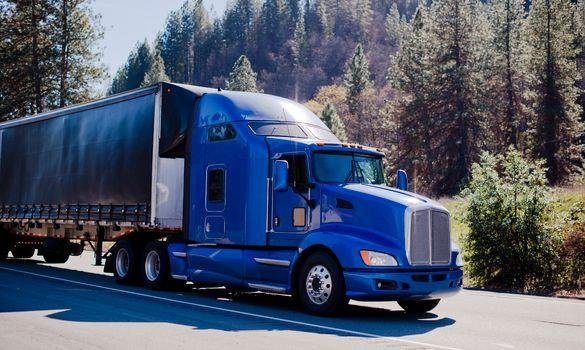Trucking companies in the US are subject to a wide range of federal regulations that can significantly impact their insurance needs. These regulations are designed to ensure the public’s safety, protect the environment, and promote fair competition within the industry. In this blog post, we will explore the impact of federal regulations on insurance for trucking company in the US.
Different Types Of Federal Regulations & Their Impact
- FMCSA: One of the most significant federal regulations that could affect trucking companies’ insurance is the Federal Motor Carrier Safety Administration (FMCSA). These regulations set driver qualifications, vehicle maintenance, and carrier safety standards. To comply with these regulations, trucking companies must keep a safety plan in place, have all the regulatory permits up to date and have the proper commercial insurance that covers possible accidents and damages caused by their vehicles and drivers.
- ELD: The Electronic Logging Device is regulated by the FMCSA. This regulation requires trucking companies to install electronic logging devices in their commercial vehicles to track the hours of service of their drivers. The device might meet the technical specifications in the ELD rule, in summary aims to establish a minimum hours of service (HOS).This helps prevent driver fatigue, a significant cause of truck accidents. A fatal truck accident due to fatigue could provoke the total cancellation of the trucking insurance.
- U.S. DOT: The Department of Transportation (DOT) regulations also play a crucial role in insurance for trucking companies. The main goal is administrating programs, policies, and rules to guarantee road safety. Trucks traveling on land might comply with all the regulations to avoid penalties. A truck accident on the road due to negligence can affect the trucking company’s record; consequently, it affects the cost of the trucking insurance.
In conclusion, federal regulations’ impact on trucking companies’ insurance in the US is significant. These regulations are designed to ensure the public’s safety, protect the environment, and promote fair competition within the industry. Trucking companies must comply with these regulations to ensure that their vehicles and drivers meet safety standards and protect themselves from potential accidents and damages. They also encourage health insurance for truck drivers along with vehicle and company insurance. Trucking companies need to work with insurance providers that understand these regulations and can help them to comply with them. Trucking companies can reduce their insurance costs and protect themselves from legal and financial liabilities by ensuring compliance with these regulations.












